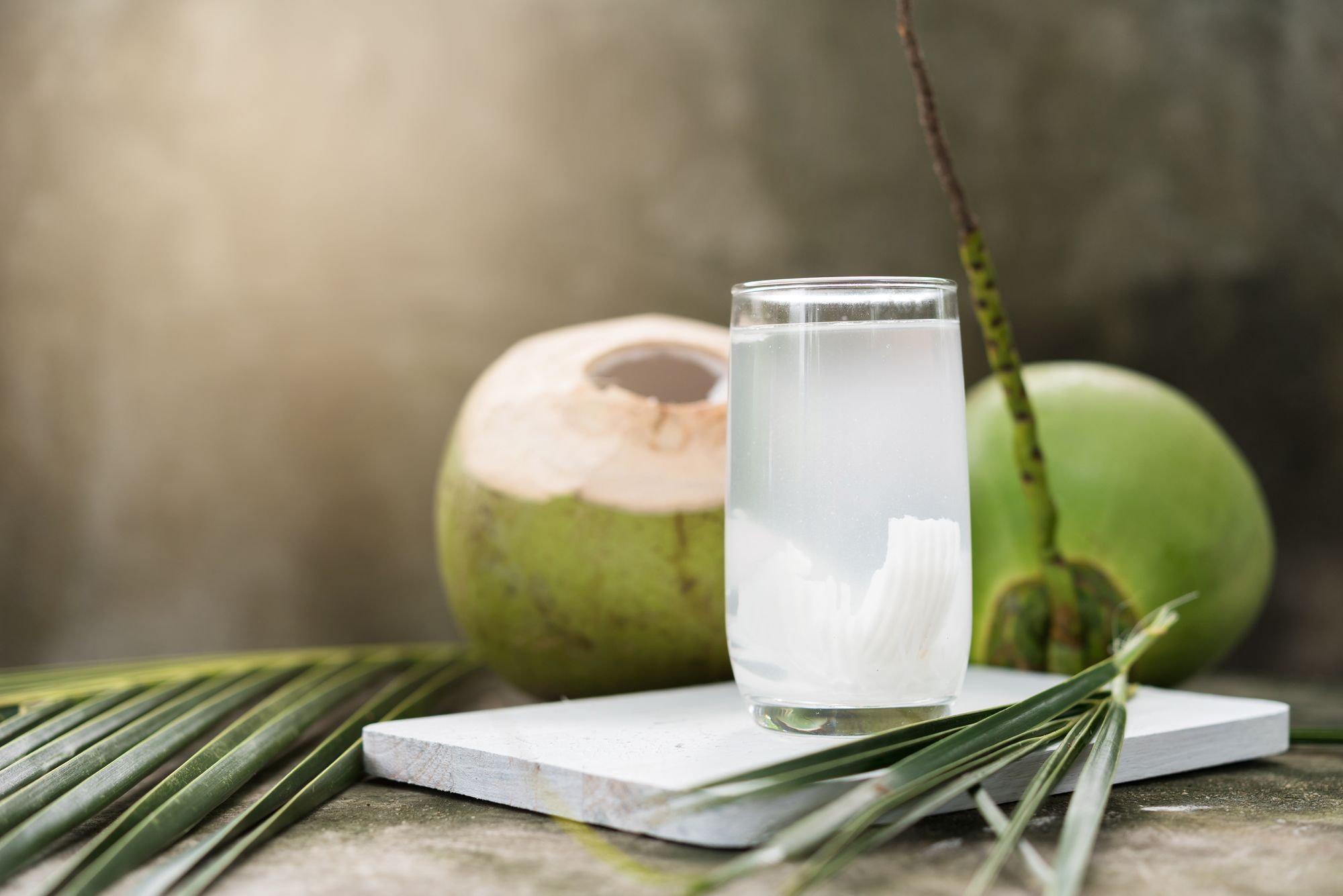If you experience discomfort like bloating or constipation after enjoying your favorite meals, your diet could be affecting your digestive health. Fortunately, there are beverages that may provide relief when these problems arise. Cleveland Clinic explains that bloating often results from excess gas due to digestion issues like food intolerance or eating too fast. Other digestive issues include diarrhea, nausea, and cramping, which can be equally frustrating. While it's natural to want quick relief, research suggests that taking a short walk after eating may accelerate gastric emptying, unlike alcoholic digestifs or espresso. To aid in digestion and relieve discomfort, try one of these eight drinks recommended by dietitians. For additional insight on foods that may seem healthy but are worse for you than candy, check out "7 'Healthy' Foods That Are Actually Detrimental to Your Health."
Water

According to Jamie Nadeau, a registered dietitian nutritionist and owner of The Balanced Nutritionist, water is undoubtedly the best drink for digestion. Nadeau explains that staying hydrated and consuming enough water assists in breaking down food and propelling it through the digestive system, promoting regular bowel movements. She notes that constipation or irregularity can lead to bloating. To make water more palatable, Nadeau suggests adding a splash of lemon or flavored drops.
Kombucha
Several nutrition experts we consulted recommended kombucha, a fermented probiotic drink that aims to improve gut health. However, it's crucial to choose a low-sugar commercial kombucha, according to Lisa Richards, a nutritionist and author of the Candida Diet. Many brands of kombucha include extra sugars, which can have an adverse impact on the gut if consumed in large amounts, Richards explains. She suggests drinking kombucha in the midday when the gut has food to digest.
Coconut Water

If you're experiencing diarrhea, you may be losing electrolytes, which can be replenished by consuming 100% pure coconut water. Rachelle Caves, a weight-management specialist and registered dietitian nutritionist, suggests that it's a superior electrolyte replacement compared to sugary sports drinks with artificial coloring. Additionally, coconut water is an easily digestible beverage that can help combat bloating due to its high concentration of natural minerals, such as potassium and magnesium, which fight water retention, says Caves.
Turmeric Beverages
According to Paulina Lee, a registered dietitian and founder of Savvy Stummy, turmeric-infused beverages contain curcumin, which triggers the gallbladder to produce bile and potentially enhances digestion. Additionally, turmeric boasts potent anti-inflammatory properties that can alleviate inflammation in the gut lining and other body areas. To incorporate turmeric into your diet, Lee suggests adding it to your morning smoothies or attempting her recipe for a Golden Turmeric Latte.
Fennel Tea

Fennel, with a flavor resembling anise, has been employed as a medicinal tea for centuries due to its gastrointestinal and digestive disorder-alleviating properties. Research has revealed that the fragrant plant is beneficial in mitigating digestive and gastrointestinal problems. To create fennel tea, take a teaspoon of fennel seeds, crush them with a mortar and pestle, and add them to a saucepan of water that you bring to a boil. Pour the tea through a strainer into a cup and sweeten with honey. Katherine Gomez, a registered dietitian and medical reviewer at Psyche Mag, explains that fennel is beneficial in relieving constipation and other digestive issues that cause gas, in addition to ensuring proper movement throughout the digestive system.
Prune juice
Registered dietitian nutritionist Bianca Garcia, a nutrition specialist for Health Canal, recommends prune juice for managing constipation, as it has a mild laxative effect primarily due to its high sorbitol content. Sorbitol is a natural sugar alcohol with a laxative effect that includes insoluble fiber that stimulates movement in the digestive tract. For other digestive problems, Garcia suggests drinking juices such as celery, apple, peaches, pears, or combinations of fruits, as they aid in hydration, which can enhance bowel movements.
Ginger tea
Rhyan Geiger, a registered dietitian nutritionist and owner of Phoenix Vegan Dietitian, highlights the presence of gingerol, an anti-inflammatory and antioxidant compound, in fresh ginger, which may accelerate the absorption process in the small intestine and improve delayed digestive motility. Ginger tea, a sugar-free option, is recommended by Geiger as an alternative to commercially available ginger ale or bottled beverages that may contain added sugars.
To prepare ginger tea, add a teaspoon of freshly peeled ginger zest to hot water and let it steep for 10 minutes. Bianca Garcia, a registered dietitian nutritionist, attests to the soothing concentrated flavor, spiciness, and invigorating aroma of ginger tea, which provides comfort when feeling bloated. Ginger tea also contains compounds that assist in relaxing the digestive muscles, enabling rapid passage of food, liquids, or gas. Peppermint tea is another beverage that delivers similar benefits. According to Paulina Lee, a registered dietitian, "it can soothe an upset stomach or enhance digestion by relaxing stomach muscles and facilitating improved bile acid flow to digest fats."
Aloe Vera Juice
Aloe vera juice, available at stores or freshly made from the aloe vera plant, is another stomach-soothing drink. According to Paulina Lee, a registered dietitian, aloe vera contains a substantial amount of antioxidants that may aid in speeding up intestinal motility and improving constipation. Additionally, it can soothe the gut and reduce gut inflammation, potentially alleviating bloating symptoms.

